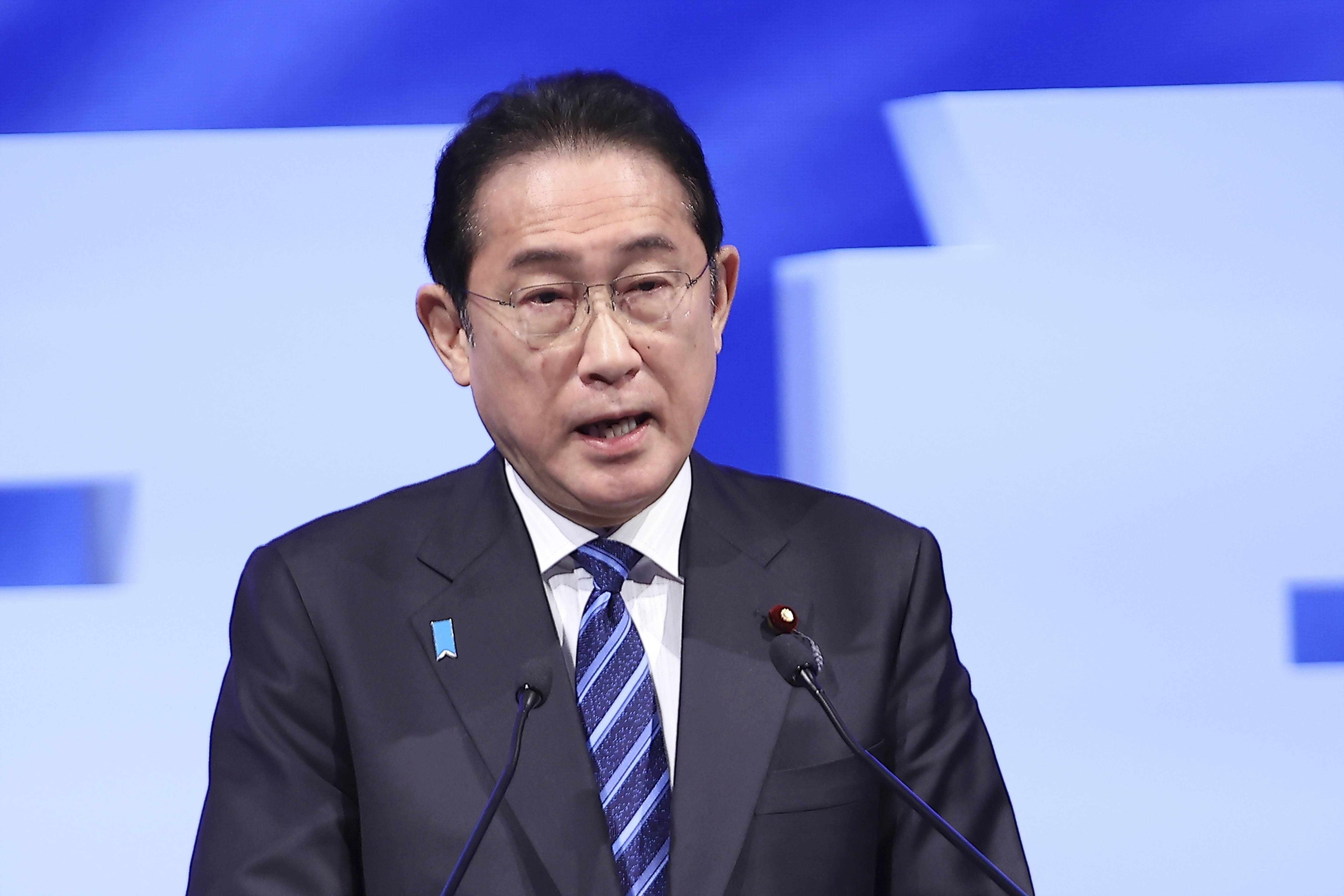
Japanese Prime Minister Fumio Kishida's visit to the United States from Monday, the first state visit by a Japanese prime minister since the late Shinzo Abe paid a state visit to the US in 2015, is widely seen as a step toward further strengthening the US-Japan alliance. The move, however, could upset the security situation in the Asia-Pacific region given the current geopolitical situation.
According to media reports, Kishida and US President Joe Biden are expected to reach an agreement on a major upgrading of the 1960 US-Japan Security Treaty during their meeting on Wednesday. The agreement may include restructuring of the US military command in Japan, in order to strengthen US-Japan joint operational planning and exercises.
Kishida will also join a first-ever US-Japanese-Philippine summit in Washington on Thursday to deepen cooperation among the three countries so as to check the peaceful rise of China. Biden, Kishida and Philippine President Ferdinand Marcos Jr. will discuss how to consolidate their supply chains and strengthen cooperation in emerging technologies apart from bolstering their trilateral defense and security cooperation.
Although the official announcement about Kishida's visit to the US and the trilateral summit did not directly mention China, some observers say the aim of upgrading the US-Japan defense alliance and the deepening of the US-Japanese-Philippine security cooperation are aimed at containing China.
First, the upgrading of the US-Japan defense alliance will disturb the strategic stability in the Asia-Pacific, as Kishida intends to integrate Japan Self-Defense Forces' operational command systems, and boost the coordination among the country's air, ground and maritime forces by bringing them under a joint operations command this year. The US, on its part, is considering granting more authority to its military command in Japan to integrate its system with that of Japan's.
An "upgraded" US-Japan security relationship far exceeds the original purpose of "defending Japan", as it will transform their defensive alliance into one that combines both offense and defense, marking a "qualitative change" in the nature of their alliance. It is obvious that the integration of the joint operational command systems of the two countries is targeted at third parties, meaning they are more likely to jointly intervene in geopolitical hotspots such as the Korean Peninsula and the Taiwan Strait.
Second, security cooperation among the US, Japan and the Philippines will further exacerbate geopolitical tensions in the region, with the deepening trilateral relationship having already become a matter of grave concern over the past year. Since their first defense policy dialogue in September 2022, the three countries have deepened their security cooperation to a large extent. In early 2023, the Philippines allowed the US to consolidate four new military bases, signed a Mutual Defense Treaty with the US and agreed to the US boosting its military deployment in the country.
Besides, Japan and the Philippines agreed to sign a reciprocal security access agreement, and Japan SDF personnel have participated in several US-Philippine joint drills as observers. The US and Japan have also helped the Philippines improve its maritime surveillance, with Japan supplying coastal surveillance radars to the Philippines in accordance with the "official security assistance" plan, which was implemented last year.
That the three sides are holding a trilateral summit in Washington shows they intend to institutionalize their defense alliance so they can jointly intervene in the South China Sea issue and the Taiwan question. Aside from making provocative moves in the South China Sea, the Philippines also participated in the first joint military exercise with the US, Japan and Australia on Sunday. As a matter of fact, the US, Japan and Australia have been encouraging the Philippines to confront China on the South China Sea issue, upsetting the security situation in the region and violating the norms of the Association of Southeast Asian Nations on regional integration.
And third, Japan's push for remilitarization has become a new regional security hazard. Japan has been desperately trying to upgrade the US-Japan alliance and strengthening cooperation with the US and the Philippines. In the past, the US used to coerce Japan to join it in checking the rise of China in order to advance its "Indo-Pacific" strategy. But now Japan is making joint efforts with the US to further strengthen the bilateral alliance.
Japan has been following the US' lead for decades, but their alliance is changing in nature due to Japan's ambition to develop into a military power. With the support of the US, Japan has been violating one principle after another of its pacifist constitution while pursuing militarization.
The Kishida administration approved three new strategic documents in 2022, proposing to develop offensive military capability and doubling its defense budget, marking the largest-scale military expansion since the end of World War II, indicating Japan's defense-oriented security policy is practically dead.
Japan has cooperated with the US in pushing the latter's "Indo-Pacific" strategy forward in an attempt to realize its ambition of becoming a "normal" country, by deviating from the track of postwar peaceful development.
Japan has been leaning to the right in recent years. The militaristic rhetoric, once advocated only by right-wing forces, has now become a major policy of the Japanese government, with Japan desperate to participate in geopolitical competitions with other countries, posing a serious threat to peace and stability in the Asia-Pacific.
And the US has been tacitly supporting Japan's rearmament in an attempt to reshape the strategy of the "island chain" and maintain American hegemony in the Asia-Pacific. This is like opening a Pandora's box, because Japan has adopted a hostile stance toward its neighbors and no one can guarantee that history will not be repeated. As such, Asia-Pacific countries should remain vigilant against the actions of the US, Japan and the Philippines, and make efforts to prevent them from raising geopolitical tensions and creating divisions.
The author is a specially appointed research fellow in the Department for Asia-Pacific Studies, China Institute of International Studies.
The views don’t necessarily reflect those of China Daily.


